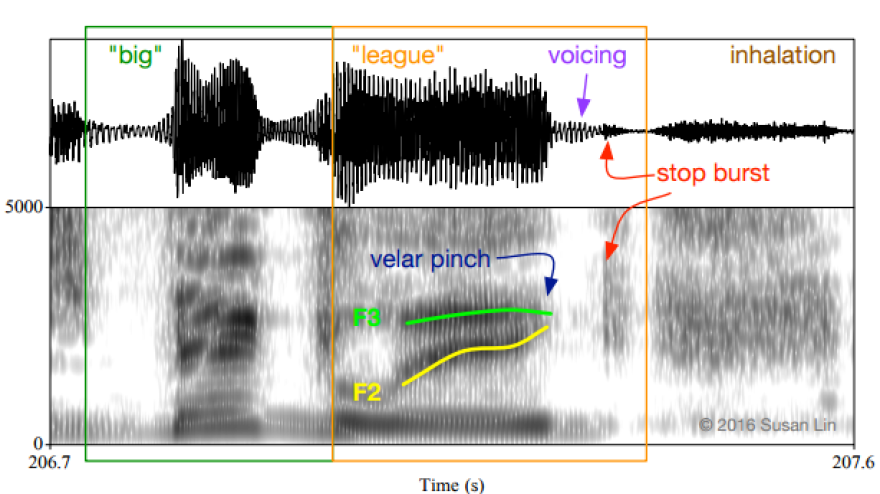The final presidential debate between Donald Trump and Hillary Clinton wrapped up last week, but a post-debate argument raged for days afterward: Is Trump saying "bigly" or "big-league"?
Many took to social media questioning what the Republican nominee could be saying.
Some even criticized him, saying bigly isn't a word.
But it turns out bigly is a word, says lexicographer and Merriam-Webster editor Kory Stamper. "Bigly is, in fact, an adverb," she says. "It's just a really rare adverb that doesn't have much use today."
Bigly's meaning has also changed through the years.
"It originally meant violently or strong," Stamper says. "Over time, it actually came to mean pompous or in an arrogant manner, which is kind of ironic."
So, bigly is a word. But is that really what Trump is saying? Many people argue that Trump is actually saying the phrase big-league — including Susan Lin, professor at the University of California, Berkeley. The phonetician studies speech and the sounds that people produce when talking.
She noticed the question over Trump's words during last Wednesday's debate. To answer it, she went back to the first general election debate and analyzed Trump's speech patterns.

"With some of the tools at my disposal, I was able to do an acoustic analysis to show — at least in this specific example of 'big-league' that I pulled out — Donald Trump is definitely pronouncing that with a final G," Lin says. "He's definitely saying 'big-league' in this specific recording and not 'bigly.' "
This phrase isn't new to Trump's vocabulary. Ben Zimmer, language columnist at The Wall Street Journal, says Trump has been using the phrase for decades.
"I've found examples of Trump using it in interviews going all the way back to the 1990s," he says.
This includes the introduction to the first episode of The Apprentice.
But is he using the phrase correctly? Zimmer says it's complicated: "Big-league, when it gets used in slang, generally is an adjective that modifies a noun," he says. "What Trump does is, he uses it as an adverb modifying a verb."
Here's an example: "We're going to win big-league." The phrase big-league is modifying the verb "win."
"That's a bit unusual in American slang usage," Zimmer says. "I think most people, if they were going to use a slang term in that adverbial use, they might use 'big time.' We're going to win 'big time.' "
At a rally Saturday at Virginia Beach, Va., Trump himself helped put an end to the debate. Talking of economic policy, clearly enunciating, Trump told the crowd he would "cut taxes big-league, cut regulations even bigger-league."
Copyright 2021 NPR. To see more, visit https://www.npr.org.






